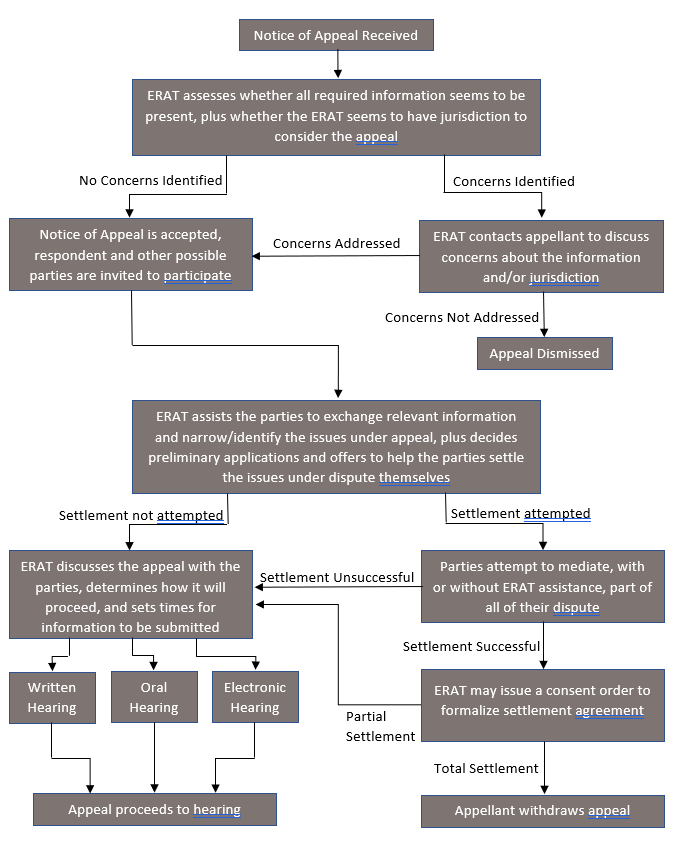Appeal Process
The ERAT handles appeals under the Oil and Gas Activities Act and its regulations. While the path followed by each appeal may be different from others, generally, appeals proceed as follows:

The ERAT’s procedures are governed by common law rules of fairness, the applicable legislation, and Rules that the ERAT has created to govern its appeal processes. The ERAT has also created its Practice and Procedure Manual to help explain its processes, and Information Sheets as a resource for parties to appeals.
The ERAT has created a Draft Decision Review Policy, which ensures that members have access to legal advice and the benefit of their peers’ experience to ensure they make the correct decision in any given appeal, without sacrificing the independence of the decision-maker or interfering with the principle that the decision must be made by the person who considered all the evidence and arguments.
The Chair has delegated certain decision-making authority to staff, allowing them to efficiently address preliminary and procedural matters within the scope and requirements of the delegation. Any delegation letters providing staff with this authority appear here:
Note: appeals to the ERAT are open to the public, unless the ERAT decides to hear an appeal (or a portion of an appeal) in confidence. Any information a party provides to the ERAT related to an appeal will be, unless the ERAT orders otherwise in that specific appeal, disclosed to all parties, participants and interveners involved in the case. Please bear this in mind, when considering what information to share with the ERAT in the context of an appeal.
Furthermore, because ERAT hearings are generally open to the public, unless the ERAT has decided to receive some evidence or submissions in confidence, it may provide any information requested by a member of the public, with respect to a given appeal. The Freedom of Information and Protection of Privacy Act applies to the ERAT and, unless requested information need not be disclosed under that Act, any non-confidential information will be made available on request, to the public.
• Draft Decision Review Policy
• Practice Directive #1
• Hearing Schedules
• Resources

